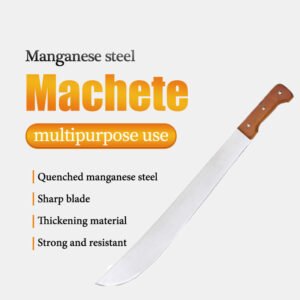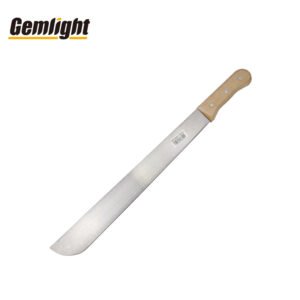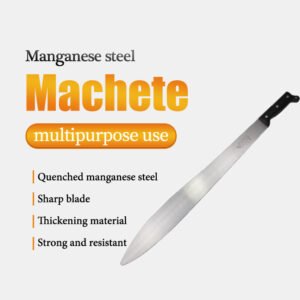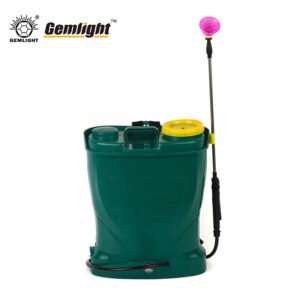1. Traditional Agricultural Uses of Machetes Across Regions
What Are Machetes Used For ? Machetes have long held a central place in agricultural life across multiple continents. From the sugarcane fields of Latin America to the rice paddies of Southeast Asia and the cocoa plantations of West Africa, machetes have been indispensable for generations.
In many developing regions, access to mechanized tools is limited due to cost or terrain, making hand tools like the machete a vital component of farming operations.
In African agriculture, machetes are widely used for clearing underbrush, harvesting tubers, and even chopping feed for livestock. In Latin America, the Bolo Machete and Cane Knife have become synonymous with sugarcane harvesting, valued for their cutting strength and curved blades that easily slice through dense stalks. Southeast Asian farmers frequently rely on Billhook Machetes for pruning, trimming, and harvesting various crops, including bananas, coconuts, and cassava.
What sets the machete apart is its adaptability. Unlike single-purpose tools, a machete can serve a farmer through every stage of the agricultural cycle—from land clearing and soil preparation to maintenance and harvesting. Its affordability and effectiveness have made it a cultural symbol as much as a practical tool, often passed down through generations.
While newer tools and machines have emerged, many farmers across regions still prefer machetes for their ease of use, low maintenance, and versatility in unpredictable environments.
The traditional use of machetes remains deeply embedded in rural economies, especially in areas where manual labor remains the backbone of agricultural productivity.

2. Modern Agricultural Tasks Requiring Machetes
With the rise of sustainable and small-scale agriculture, the demand for reliable manual tools such as machetes has seen a renewed surge. In contemporary farming, machetes are far from obsolete—they play a vital role in addressing daily field challenges where agility, precision, and cost-efficiency are essential.
Machetes are commonly employed for harvesting hard-stem crops such as sugarcane, maize, and millet. In regions with limited or no access to mechanical harvesters, the machete remains the fastest and most flexible tool for workers on the ground. With the right blade type—such as the Serrated Machete or Cane Knife—farmers can optimize productivity without compromising on accuracy.
Additionally, machetes are crucial for land maintenance. Clearing overgrown vegetation, creating firebreaks, and managing weeds are common uses.
In organic farming or agroforestry environments, machetes enable precise control over plant growth, minimizing the need for chemical herbicides or large machinery. They’re also preferred for pruning fruit trees, trimming overhanging branches, and opening up planting rows in thick brush areas.
In livestock farming, machetes are used to prepare animal fodder by cutting long grasses or slicing through root vegetables. The portability of a machete makes it ideal for remote or uneven terrain where wheel-based tools are impractical.
Ultimately, the machete bridges the gap between tradition and innovation in agriculture. While the global industry moves toward automation, machetes remain vital in regions where accessibility, budget, and geography demand reliable hand tools. Agricultural professionals today continue to value machetes not just as cutting tools, but as integral assets that improve efficiency and sustainability on the field.
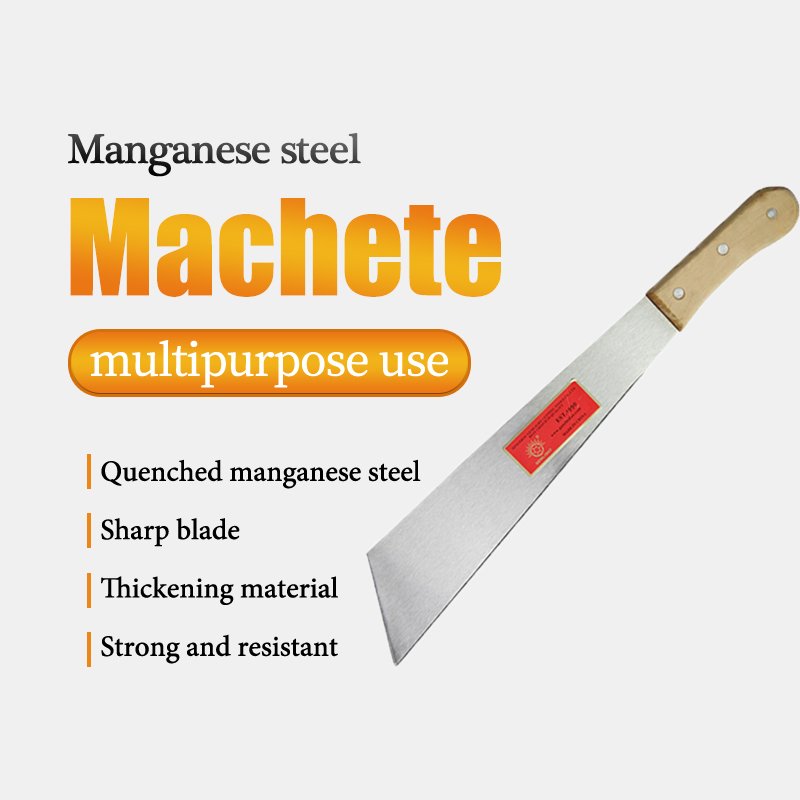
3. Factory-Direct Agricultural Machetes from Our Company
At our manufacturing facility, we specialize in providing high-performance agricultural machetes designed for both traditional and modern farm applications.
With over 30 years of production experience and more than 20 years of successful export operations to Africa, Southeast Asia, and Latin America, we understand the specific needs of field professionals in different climates and working conditions.
Our machete portfolio includes a wide range of models tailored to agricultural use:
- Cane Knives: Ideal for sugarcane and sorghum harvesting, featuring strong, straight edges and ergonomic handles.
- Billhook Machetes: Curved for pruning and branch trimming, suitable for fruit and tree farming.
- Colima Machetes: Double-edged for both cutting and scraping tasks, versatile for mixed-use farms.
- Weighted Machetes and Bolo Machetes: Designed for heavy-duty clearing or chopping larger crop stems.
We offer extensive customization options to meet specific market needs, including:
- Blade Materials: High-carbon steel, black-coated steel, rust-resistant finishes
- Blade Sizes: Ranging from 12″ to 28″, with options for full tang or partial tang
- Handles: Hardwood, plastic, anti-slip rubberized, or custom molded options
- Packaging: Individual branding, bulk shipment, OEM/ODM support
Our factory is certified by SGS and Alibaba Verified, ensuring consistent quality control and international-standard logistics capabilities. Whether you’re sourcing tools for local distribution or project-based agricultural supply chains, we provide competitive pricing, fast delivery, and stable production capacity for long-term partnerships.
Agricultural machetes are more than tools—they are investments in labor efficiency. We welcome wholesalers, importers, and farm supply distributors to contact us for factory-direct quotes and free samples.
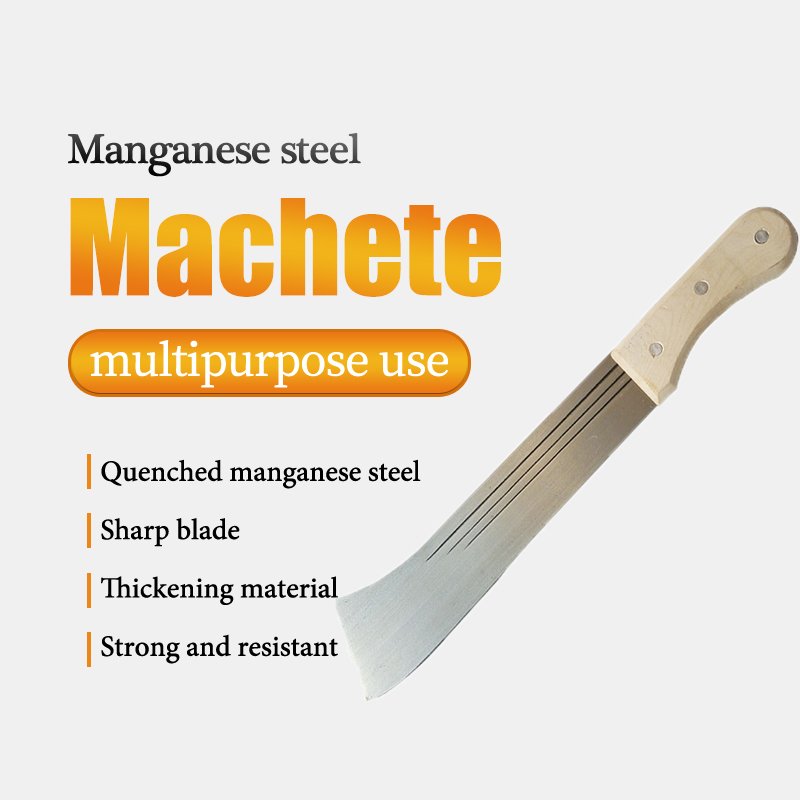
4. Why Agricultural Professionals Still Choose Machetes
In an era of agricultural mechanization and automation, one might assume the machete would fade into obsolescence.
However, its continued relevance across farming communities worldwide proves otherwise. Agricultural professionals choose machetes not just out of habit, but because of their proven value in specific, critical tasks that machines can’t yet replace efficiently or affordably.
First, the simplicity and low maintenance of machetes make them ideal for rural areas with limited access to electricity, fuel, or repair services. Unlike gas-powered trimmers or harvesters, a well-crafted machete requires no external energy source and very little upkeep—just occasional sharpening.
Second, machetes allow for selective and precise work. In organic farming, for instance, clearing weeds around desirable plants without damaging crops is often better achieved with a hand tool than with large machinery. For fruit trees or trellised crops, pruning with a sharp machete is faster and more controlled than with electric cutters.
Third, the cost-efficiency of machetes makes them a go-to solution in developing regions and for budget-conscious operations. A durable, factory-supplied machete costs a fraction of powered tools, yet delivers years of dependable service. For many agricultural businesses, especially those working across rough or remote terrains, the machete is not just a tool—it is a necessity.
Finally, the evolving design and material innovation in machetes means they continue to meet modern standards. Anti-rust coatings, ergonomic handles, and balanced blades are improving user safety and comfort, further supporting their relevance in modern agricultural tasks.
In summary, machetes endure because they strike the perfect balance between performance, reliability, and affordability. For professional users managing diverse field environments, the machete remains a timeless, indispensable agricultural instrument.
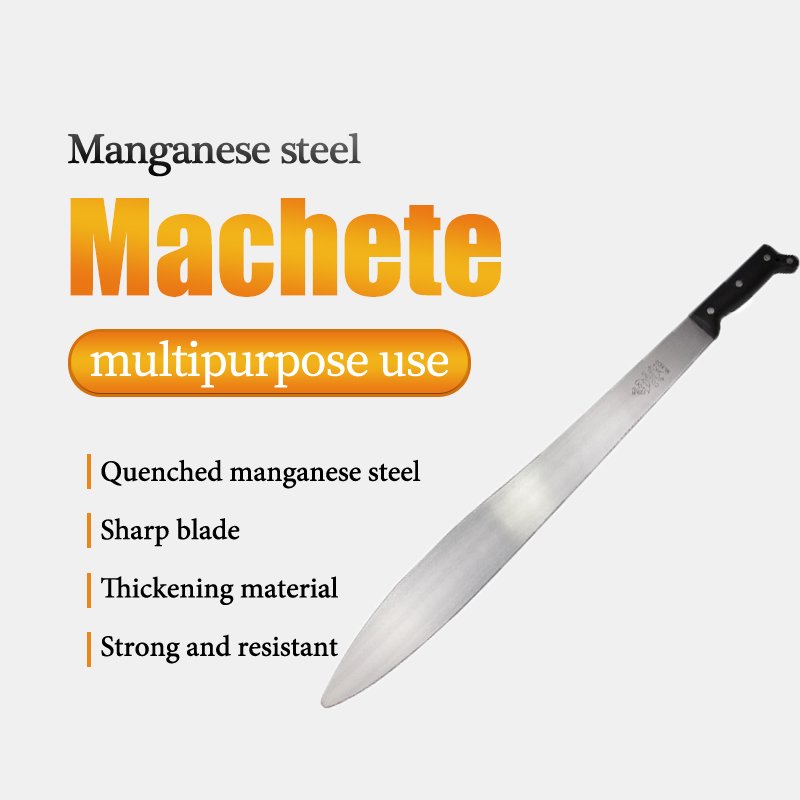
About us:
Dingzhou Gemlight Cutting Tools Co., Ltd.,With a solid foundation since 1990, Gemlight machete is a trusted name in the field of cane machete manufacturing. We focus on R&D, design and production to produce high quality wholesale china machete and shovel,hoe,pickaxe,sickle,farm tools.
Gemlight Machete factory Based in Baoding, Hebei, China, we benefit from efficient logistics and fast delivery. Our products have been well received in more than 50 countries, thanks to our commitment to customer satisfaction

